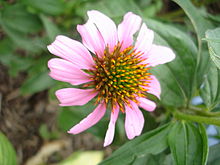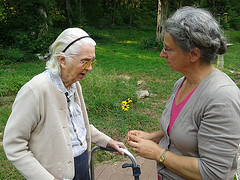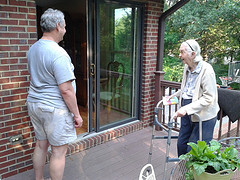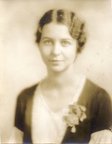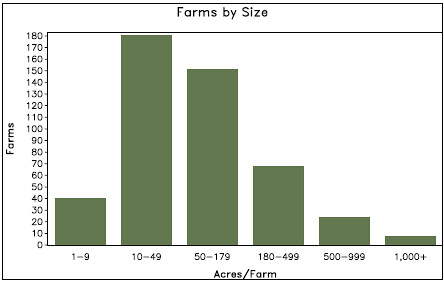Dr. Elsie Quarterman pioneered the ecology of cedar glades.
Yesterday she attended the annual festival named in her honor, the
Elsie Quarterman Cedar Glade Wildflower Festival
at Cedars of Lebanon State Park, Lebanon, Tennessee.
Aunt Elsie is 100 years and five months old, and isn’t getting around as fast as she once did,
so she met with her students and grand-students at a local
restaurant. Only a few of them are pictured here:
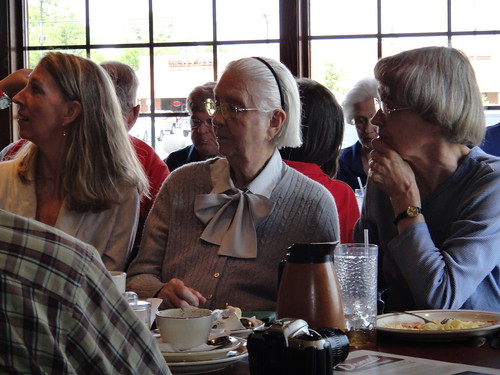
Kim Cleary Sadler,
Assistant Professor of Biology at Middle Tennessee State University
and co-Director of the
Center for Cedar Glade Studies.
(Student of
Thomas “Tom” Ellsworth Hemmerly, who was teaching and couldn’t come.)
Dr. Elsie Quarterman, Professor Emerita of Plant Ecology, Vanderbilt University
Carol C. Baskin, Professor of Biology, University of Kentucky
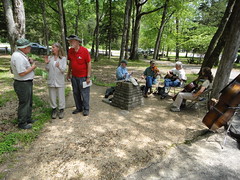 There were classes, botany walks, owl hoots, and musicians.
Here’s the schedule.
It was sunny this year,
unlike last year’s great flood.
Next year, you should come!
Get out of town, take a walk in the glades.
There were classes, botany walks, owl hoots, and musicians.
Here’s the schedule.
It was sunny this year,
unlike last year’s great flood.
Next year, you should come!
Get out of town, take a walk in the glades.
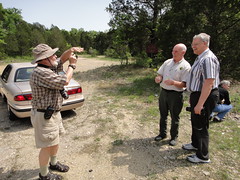 Elsie got a guided tour, with
Tennessee State Naturalist Emeritus Mack Pritchard
and his successor Randy Hedgepath.
Here they are with Elsie’s nephew Patrick Quarterman,
while Gretchen Quarterman photographs a glade.
Elsie got a guided tour, with
Tennessee State Naturalist Emeritus Mack Pritchard
and his successor Randy Hedgepath.
Here they are with Elsie’s nephew Patrick Quarterman,
while Gretchen Quarterman photographs a glade.
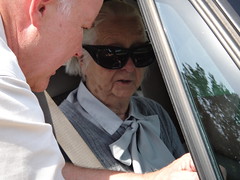 Here
State Naturalist Randy Hedgepath
consults with Dr. Quarterman about identification of a cedar glade plant.
Here
State Naturalist Randy Hedgepath
consults with Dr. Quarterman about identification of a cedar glade plant.
Elsie got out of the car to look at this one with Randy and Ann Quarterman:
Continue reading →
![[Pearson Tribune Subscription Receipt]](http://www.okraparadisefarms.com/pictures/1947-08-30--pearson-tribune/20241013_134915.jpg)



